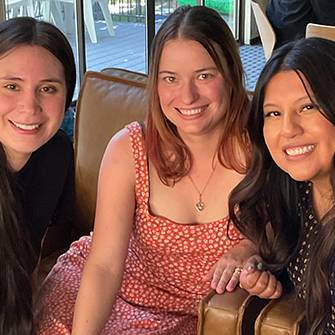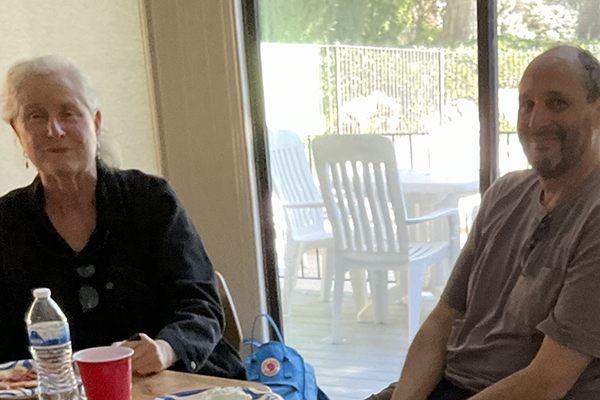Health and Well-being
 Social psychological processes are among the most powerful contributors to both mental
and physical health outcomes. The faculty at the University of Utah are engaged in
cutting-edge research addressing the bidirectional associations between social processes
and health as well as the translation of this knowledge to interventions to promote
health and well-being. This work includes both clinical and community samples, utilizes
diverse methodological and statistical approaches, and examines both mental (e.g.,
well-being, intrinsic motivation) and physical (e.g., inflammation, cardiovascular
disease) health outcomes. Researchers in this concentration are interested in the
following questions (see sample papers below):
Social psychological processes are among the most powerful contributors to both mental
and physical health outcomes. The faculty at the University of Utah are engaged in
cutting-edge research addressing the bidirectional associations between social processes
and health as well as the translation of this knowledge to interventions to promote
health and well-being. This work includes both clinical and community samples, utilizes
diverse methodological and statistical approaches, and examines both mental (e.g.,
well-being, intrinsic motivation) and physical (e.g., inflammation, cardiovascular
disease) health outcomes. Researchers in this concentration are interested in the
following questions (see sample papers below):
- How do social and self-regulatory processes influence oneʼs reaction to health communications and other elements of personalized medicine (e.g., risk/genetic testing)?
- What are the statistical approaches to modeling change in chronic disease management?
- How do individuals maintain interest and motivation when they need to learn on their own, exercise regularly, or work on long term projects?
- What are the psychological and biological mechanisms linking social relationships to health?
People
Social Area Faculty
Affiliated Faculty (Outside of the Social Area)
Papers Related to Research Questions
- How do self-regulatory processes influence one’s reaction to health communications (e.g., risk/genetic testing)?
Aspinwall, L.G., Drummond, D.M., Stump, T. K., Kohlmann, W.K., & Leachman, S.A. (2022). Interactive beliefs about genes and behavior predict improved sun protection following melanoma genetic counseling. Annals of Behavioral Medicine. Electronic publication February 18, 2022.
Aspinwall, L. G, Stump, T. K., Taber, J. M., Drummond, D., Kohlmann, W., Champine, M., & Leachman, S. A. (2018). Genetic test reporting of CDKN2A provides informational and motivational benefits for managing melanoma risk. Translational Behavioral Medicine, 8(1), 29-43.
- What are the statistical approaches to modeling change in chronic disease management?
Butner, J., Gagnon, K. T., Geuss, M. N., Lessard, D. A., & Story, T. N. (2014). Using topology to generate and test theories of change. Psychological Methods.
Butner, J. E., Berg, C. A., Baucom, B. R., & Wiebe, D. J. (2014). Modeling coordination in multiple simultaneous latent change scores. Multivariate Behavioral Research, 49(6), 554-570.
- How do individuals maintain interest and motivation when they need to learn on their own, exercise regularly, or work on long term projects?
Sansone, C., Geerling, D.,Thoman, D.B., & Smith, J.L. (2019). Self-regulation of motivation: A renewable resource for learning. In K. A. Renninger & S. Hidi (Eds.) Cambridge Handbook on Motivation and Learning.
Sansone, C., Smith, J.L., Thoman, D., & MacNamara, A. (2012). Regulating goals-defined and experience-defined motivation when learning online: Motivation and performance tradeoffs. The Internet and Higher Education, 15 (3), 141-149.
- What are the psychological and biological mechanisms linking social relationships to health?
Uchino, B.N. & Way, B.M. (2017). Integrative pathways linking close family ties to health: A neurochemical perspective. American Psychologist, 72, 290-300.
Uchino, B.N., Baucom, B.R.W., Landvatter, J., Kent de Grey, R.G., & Tacana, T. (2022). Perceived social support and ambulatory blood pressure during daily life: A meta-analysis. Journal of Behavioral Medicine.
- How can we use state of the art techniques to handle missingness in health data?
Merluzzi, T., Philip, E., Heitzmann, C., Gomer, B., & Kim, D. (2021). Comorbidity, functional impairment, and emotional distress: A coping mediation model for persons with cancer. Annals ofBehavioral Medicine, 55(10), 994–1004. .https://doi.org/10.1093/abm/kaaa122
Gomer, B., & Yuan, K.-H. (2023). A realistic evaluation of methods for handling missing data when there is a mixture of MCAR, MAR, and MNAR mechanisms in the same dataset. Multivariate Behavioral Research. 58(5),988-1013.
Relevant Course Offerings
Graduate Courses
- PSY 6962 – Topics in Health Psychology: Stress, physiology, and health
- PSY 7240 – Relationships and Health over the Lifespan
- PSY 7962 – Social Psychological Approaches to Health and Well-Being
- PSY 7860 – Culture, Diversity, and Mental Health
- PSY 6961 – Practicum in Clinical Psychology: (if Behavioral Medicine Practicum, social students can take the first semester on theory but not the second which relies on placement work).
- PSY 7750 - Messy Data
Advanced statistical/methods courses to support specialization:
- PSY 6520 – Psychological Measurement
- PSY 6550 – Structural Modeling
- PSY 6551 – Advanced Structural Equation Modeling
- PSY 6556 – Analysis of Temporal Data
- PSY 6558 – Multilevel Modeling
- PSY 6895 – Advanced Methodological and Statistical Issues in Dyadic Research
- PSY 7510 – Practicum in Measurement, Analysis, or Design
Courses from Other Departments & Programs:
The University of Utah is home to many top-rated research programs in health and medicine. Students may consider courses and research opportunities in Gerontology, Family & Preventive Medicine, Health Promotion and Education, Population Health Sciences, Communicating Science, Health, Environment and Risk (CommSHER) in the Department of Communication, the Consortium for Families and Health Research, the Clinical and Translational Science Institute, and the Huntsman Cancer Institute, among others.
- NURS 2270 – Pathophysiology
- ED PS 6068 – Meditation and Stress Reduction
- H EDU 7020 – Transpersonal Health and Advanced Stress Management
- H EDU 6000 – Foundations and Theory of Health Promotion
- H EDU 6250 – Health Theories in Individual Behavior Change
- NURS 7420 – Health Promotion and Social Determinants of Health
- GERON 6235 – Successful Cognitive and Emotional Aging
Undergraduate Courses
- PSY 3330 – Stress Management
- PSY 3460 – Health Psychology
- PSY 4460 – Social Psychology of Health and Illness
Additional Resources/Facilities
Departmental
- Behavioral Medicine Research Group
- Close relationships Research Group
- Developmental Research Group
- Cardiovascular Psychophysiology Assessments
- Neuroendocrine Assessments

